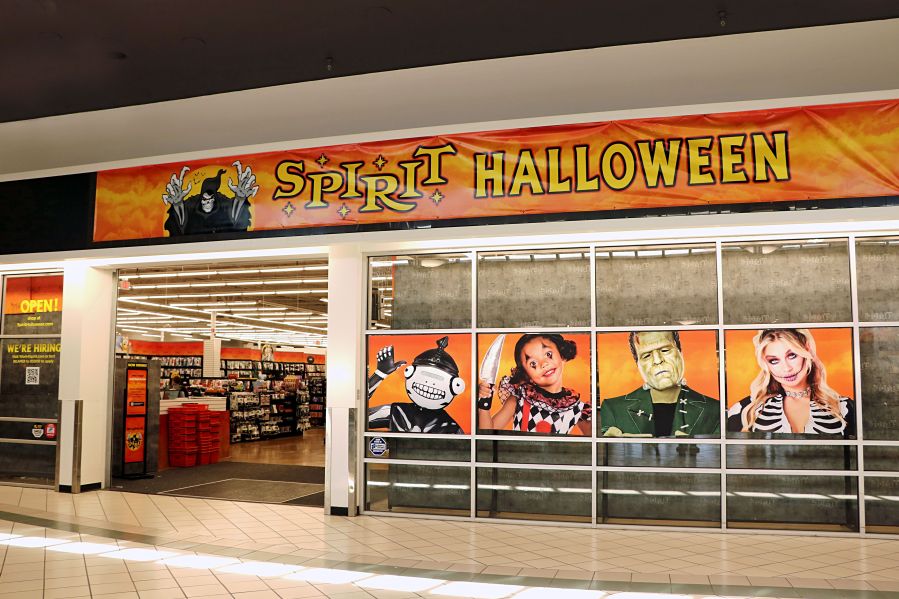The hot dogs weren’t even on the grill yet. The Fourth of July fireworks were still grounded. Patriotic parades hadn’t started on Main Street. But one thing had ALREADY begun: Halloween.
That’s right, the holiday at the very end of October had already hit store shelves. And Christmas isn’t far behind.
At JoAnn, which has 830 fabric and crafts stores across 49 states, the trending search online was “Halloween.” Inside stores, shelves were stocked with Halloween décor several weeks ago, with Fourth of July products in the bargain bin nearby.
JoAnn calls it the “One-stop Scare Shop: to knock ‘em dead this Halloween.”
Michael’s, with some 1,200 U.S. locations, has a Halloween tab online right after the back-to-school tab. The retailer is touting exclusive access to Halloween collectibles, DIY prep supplies, and more.
Michael’s tells KTLA 5 News that “Ashland Halloween” -for its Ashland line or products- has been trending on the site for days. It’s part of what’s dubbed “Summerween” – when those hot summer days meet a fast-approaching fall.
Along Lake Street in Pasadena, California, in the middle of the summer’s biggest heat wave, the Help Wanted signs were already out for Spirit Halloween.
Costco’s Holiday & Seasonal section includes a mix of “Beach,” “Beat the Heat,” and “Back to School” items, along with Halloween decorations and costumes.
So why do retailers tend to rush into the holidays?
Consider this: Retail Dive projected Halloween spending to reach $12.2 billion in 2023, up $1.6 billion from the prior year.
For Party City, Halloween accounts for more than 20% of its annual sales.
“Halloween decorations in June is little different from, say, Christmas decorations going up in September,” says KTLA consumer reporter David Lazarus. “Businesses know you’ll be doing seasonal shopping. So, they’re trying to get you to commit to spending with them, even at a time of year when months-down-the-road holidays aren’t on your radar.”
Michaels tells KTLA that Halloween is crucial to their business.
“Halloween is very important to our Michaels customers, who we know from our research are always eager to see this seasonal décor and supplies begin arriving in stores,” a company spokesperson said. “In recent years, we’ve seen customer demand trend in the direction of celebrating Halloween as a season, not just a single day.”
But experts say all this early and extended holiday talk—whether it’s Halloween, Thanksgiving, or Christmas—has a downside, both financially and psychologically.
“The danger to this strategy is that some consumers will react negatively to early holiday sales, wondering why you’re already focusing on the fall or winter when everyone else is still in summertime mode,” Lazarus says. “For example, stores playing Christmas music before Thanksgiving can be a turn-off for many people.”
A turn-off. Or a real stress.

Family psychotherapist Dr. Fran Walfish tells KTLA that this early emphasis on holidays can exacerbate feelings of financial stress.
“The additional stress is rooted in money,” she says. “Most American families are struggling to make ends meet. The early reminder that more expenditures are coming can be depressing to some. There is a domino effect coming.”
The flip side, Walfish says some people enjoy seeing all that holiday merch on display and getting holiday shopping out of the way early. The added time, she says, could allow for flexibility.
“If this year you’re cutting back and spending less have no shame. Believe me, you are not alone,” Walfish says.













